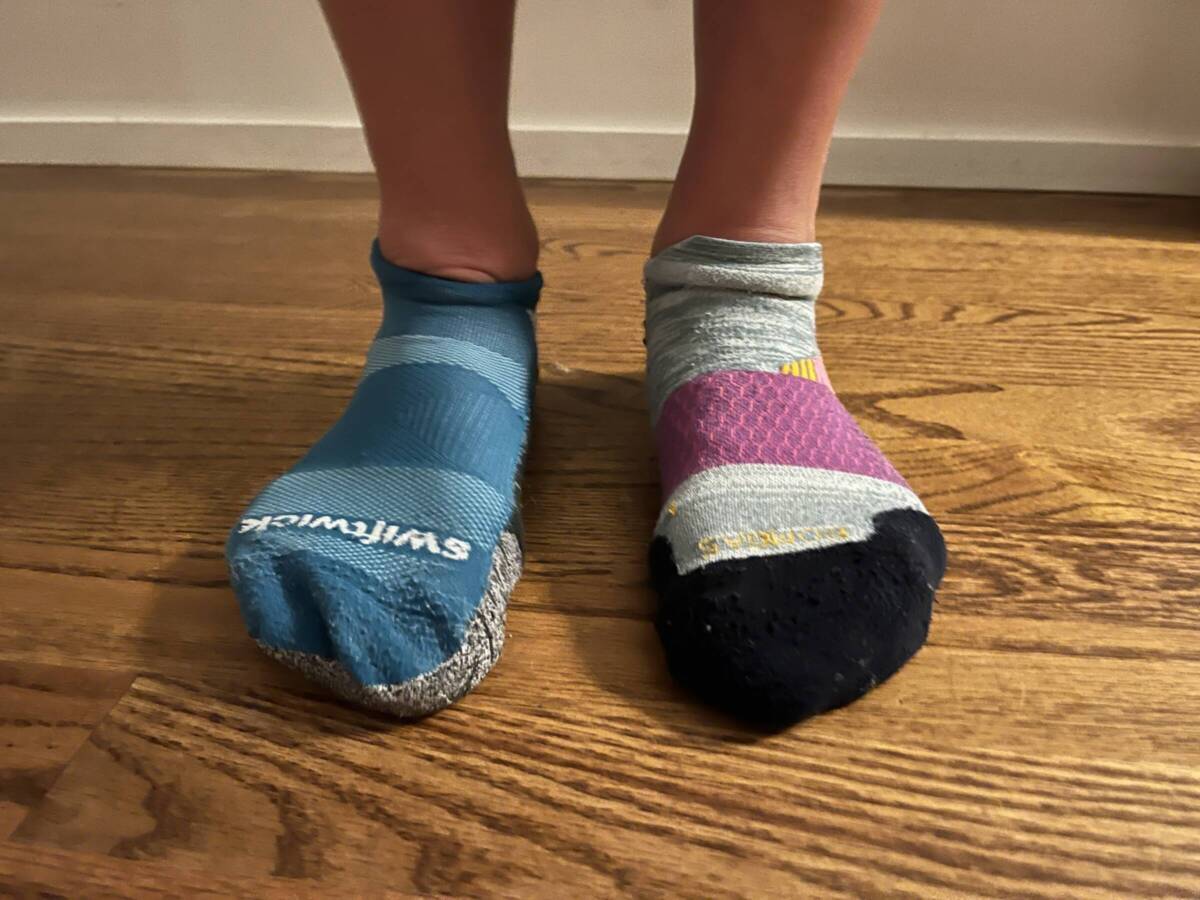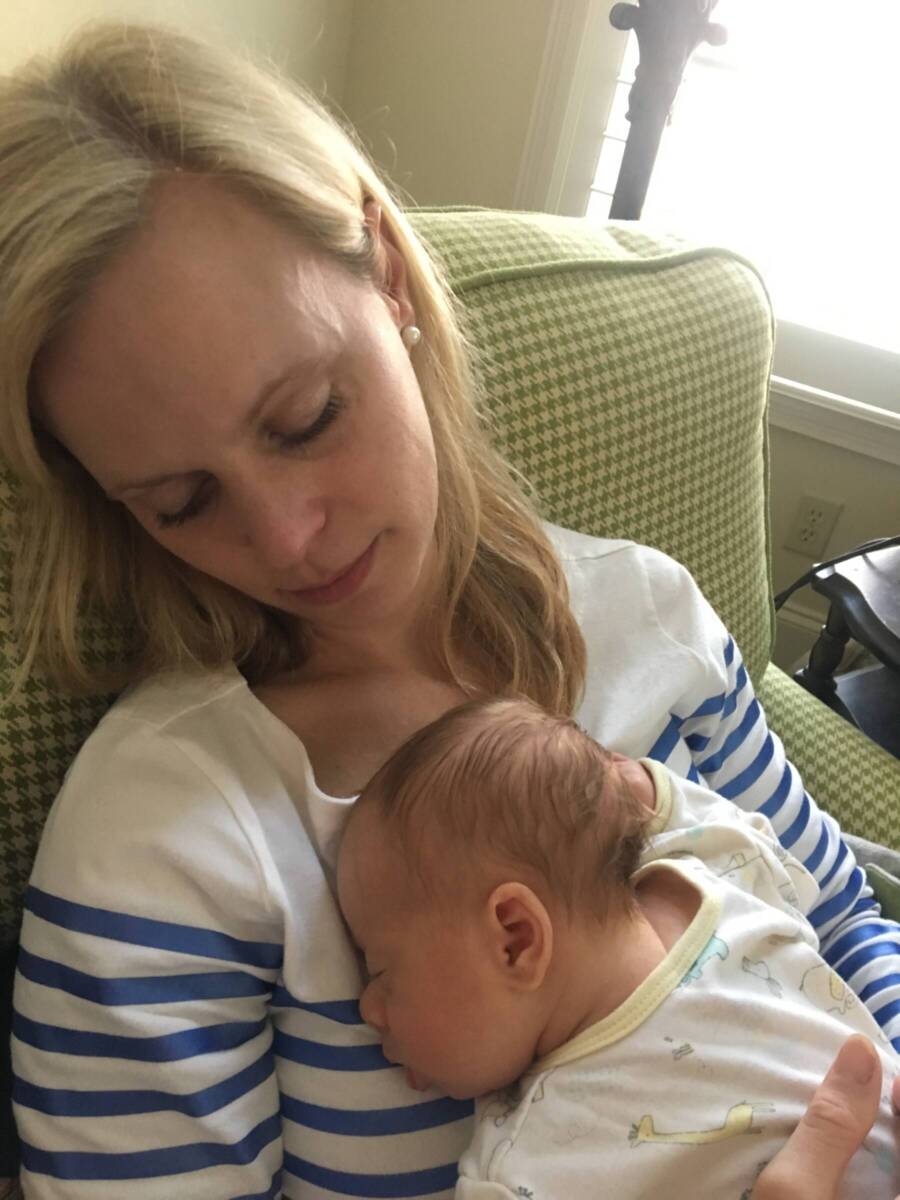Here’s Why You’re So Hungry On Your Rest Day
“Why am I so hungry on my rest day?” I got an email from one of my athletes asking this question. If you find yourself eating your family out of the house and home on your rest day from running, you are not alone. It’s really common. Particularly there are three major reasons you may be hungry on your rest day.

I’m usually really hungry on my rest days and I’ve learned to not fight the feeling. Your body is working hard throughout the week and needs those nutrients to recover. A lot of runners make the mistake of trying to eat less on their off day from running. This can set you up for not feeling fresh when you resume training because it hurts your recovery.
Furthermore, it could set you up for a running injury or illness as your body doesn’t have what it needs to build back stronger from the stress you put on it during the week.
If you struggle with eating on your rest day, try to remember that and reframe it as a recovery day. And on a recovery day, you should do things that aid your recovery.
Table of contents
As a running coach, I tell my athletes to eat a lot on their rest day—especially if it follows a big week of training or a big workout or long run. I also tell them to do some gentle stretching or light yoga if it feels good. I suggest a book an Epsom salt bath, gentle walk, and some mobility work.
Rest days are crucial for a runner’s health and longevity in the sport. I never train a runner without implementing at least one rest day per week.
As a runner myself, I have learned the importance of rest days. I used to run 7 days a week and each training cycle I did that, I would end up injured. What’s more—I went into each training week feeling like it was a grind and not fresh in my body or mind to train my best. I constantly felt like I was riding the red line.
So, why are you so hungry on your rest day from running? I asked my go-to sports running dietitian, Megan Robinson.
3 Reasons You Are So Hungry on Your Rest Day from Running
1. Recovery from training stress.
“I always say “rest day is an eating day!” says Robinson. Why? This is a time when your body is adapting and recovering from your previous training sessions.
That’s why, she says, it’s important to listen to your hunger cues on easy workout days or rest days so your body is recovering and replenishing glycogen stores to train well the next day. Glycogen stores carbs which is the primary fuel your body burns for running. Replenishing glycogen stores is crucial for reducing fatigue and improving recovery.
That means, eat the carbs guilt-free. Your body needs them.
2. Delayed hunger.
Robinson notes that being hungry on rest days may also be delayed by a hard workout or long run.
“Your appetite may be suppressed right after exercise, and it may take a day or so to increase when you’re resting” she explains.
This is why it’s important to eat enough after hard workouts or long runs (despite lack of hunger), so your body is recovering quickly and you’re not in an energy deficit.
Ideally, you want to eat a snack or meal of carbs (about 75-100 grams), fat (about .45 g per pound of your bodyweight), and protein (at least 20 grams or a 3:1 or 4:1 carb/protein ratio) after your long run or hard workout. Then a couple of hours later, eat a bigger meal with all your macros.
You’ll also need to rehydrate with electrolytes. If you did a long run, you’ll roughly need 32 ounces with 400mg of sodium.
Personally, I find my energy dips and I feel tired when I don’t eat enough. I think I am sleepy, not hungry. Then I eat, and, voila, my energy is back. Don’t trust your tummy in these situations. Your body did a lot of work during your run, and it needs the supplies to recover.
Some meals I like to eat after a long run include:
- Banana and peanut butter on whole wheat toast or bagel
- Fruit smoothie with protein powder and nut butter
- Fruit and yogurt parfait with nut butter
- Turkey and Swiss cheese sandwich with avocado and spinach, and a side of chips
- Toasted bagel breakfast sandwich with eggs, cheese, and spinach
Get the play-by-play on what to eat after a long run plus meal ideas here.
3. Higher energy needs.
Another reason for being hungry on your rest day is that is overtime as you gain more muscle mass and increase mileage, energy needs should also increase as well, explains Robinson. Too many runners keep their carb intake too low during mileage increases or on hard workout days, causing delayed recovery and hunger the next day. Don’t fall into this trap because over time it can diminish or even reverse your returns.
So, what should you eat on your rest day from running?
Now, just because we are telling you to eat to your heart’s desire on your rest day, that doesn’t mean you should be eating junk all day. Your body needs quality food to repair itself so it can turn around and train hard and feel good the next day.
Here are Robinson’s tips for eating on your rest day from running.
1. Eat when you’re hungry.
The day after a long run, hard workout, or training week, your body is going to send you hunger cues and you need to listen. Immediately after a hard run, you may not be hungry due to changes in hormones, but later on, including the day after, your body will be sending you signals that it needs supplies to recover from the stress of your workout. Listen to your body, says Robinson—especially on your rest days.
“Don’t restrict your eating just because you are not exercising that day, that will only set you up for under-fueling and limit your ability to progress your training.”
It’s pretty simple really: eat when you are hungry. Stop when you aren’t anymore.
2. Make your breakfast the most important meal of the day.
Don’t wait until dinner to eat like the queen that you are, says Robinson. Instead, she advises runners to frontload their calories early in the day to optimize recovery and limit mindless eating. Flip the habit of a small meal at breakfast and lunch and a big dinner.
“Not eating enough earlier in the day will set you up for grazing on snacks mid-afternoon, as well as overeating at night,” she warns. “Spread out your calories throughout the day to maximize your recovery and maintain energy levels.”
3. Get your macronutrients AND micronutrients.
Eating a variety of foods from carbohydrates, proteins, and fats can help to refuel your muscles on rest days and prepare them for the week of training, advises Robinson.
- Protein-rich foods to help with muscle growth you can include in your rest day eating include meat, eggs, cheese, nuts/nut butter, tofu, milk/yogurt, and beans.
- Carbohydrate-rich foods to help restock glycogen stores (your fuel for energy) can include grains, milk/yogurt, fruit, and vegetables help to replenish muscle glycogen stores.
- Healthy, unsaturated fats from olives, olive oil, canola oil, avocados, avocado oil, nuts/seeds, peanut and other nut butters, and fatty fish, such as salmon, are important as they help reduce inflammation and aid with recovery, says Robinson.
Get a list of healthy meal ideas for runners on their rest day here.
Rest days are crucial for runners to stay healthy and get stronger. What you eat can optimize your rest day so your body is that much more able to take on what training lies ahead.
Are you hungrier on your rest day from running?






